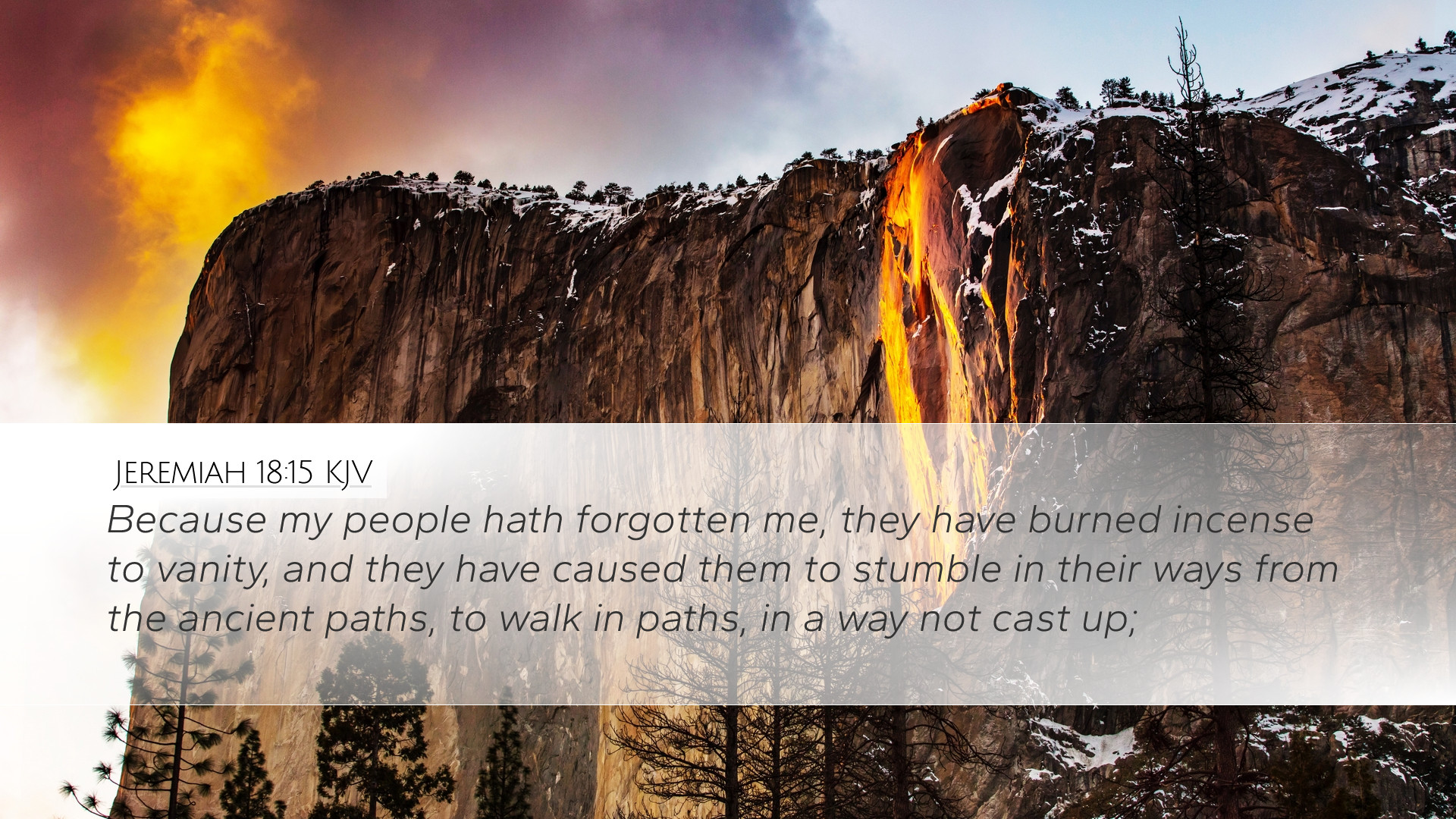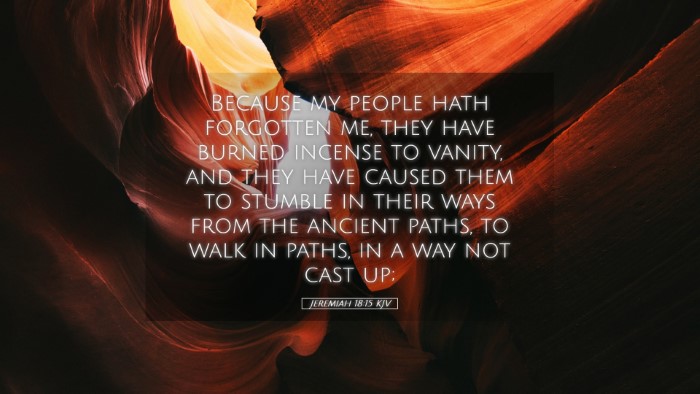Commentary on Jeremiah 18:15
Jeremiah 18:15 states:
“Because my people have forgotten me, they have burned incense to false gods; and they have caused themselves to stumble in their ways, from the ancient paths, to walk in paths, in a way not cast up.” (Jeremiah 18:15, NKJV)
Introduction
The prophet Jeremiah, often referred to as the "weeping prophet," addresses the spiritual and moral decay of the people of Judah. This verse encapsulates a poignant lament over God's people's forsaking of Him and His ancient ways. In this commentary, we will draw insights from public domain commentaries, including those by Matthew Henry, Albert Barnes, and Adam Clarke, to provide a comprehensive exploration of the implications of this text for pastors, students, theologians, and Bible scholars.
Theological Context
Human Nature and Divine Rejection
Jeremiah's message hinges on the relationship between human behavior and divine expectation. Matthew Henry emphasizes the nature of God's people straying from their Creator, highlighting a spiritual amnesia that leads to idolatry. This amnesia is indicative not only of forgetting God but also of neglecting the covenantal relationship established with Him.
Consequence of Forsaking God
Idolatry and Its Consequences
According to Albert Barnes, the burning of incense to false gods represents a grave sin that incites God's anger. The act of incense burning is a symbol of worship and devotion. Therefore, its misplacement to idols signifies a fundamental betrayal of trust and fidelity towards Yahweh.
-
Spiritual Stumbling: The phrase "caused themselves to stumble" denotes a deliberate action that results in moral and spiritual decline. This self-inflicted stumbling implies that the people are responsible for their spiritual state.
-
Rejection of Established Paths: The reference to "ancient paths" points to the established ways of righteousness that God has laid out. The failure to walk in these paths results in deviation from divine truth.
Historical Perspective
Context of Jeremiah's Prophecy
Adam Clarke provides historical context, noting that Jeremiah prophesied during a time of significant national upheaval. The people were influenced by surrounding nations and their practices, leading to a blending of religious beliefs that diluted pure worship.
This syncretism reflects the dangers of cultural assimilation and the temptations that arise when God's people occupy spaces of moral ambiguity.
Call to Reflection
This verse serves as a profound call to reflection for contemporary readers. Pastors and theologians are reminded that forsaking the truth of God's Word, whether through ignorance or willful rebellion, leads to spiritual decline. The challenge remains to guide congregations back to the ancient paths that God's Word lays before us.
Practical Application
Community Responsibility:
The community of faith bears a collective responsibility to uphold the truth and reject that which contradicts God's Word. In light of Jeremiah's warnings, congregations must be vigilant against the subtle encroachments of cultural pressures that lead away from God.
Summary and Conclusion
In summary, Jeremiah 18:15 encapsulates a critical warning against the dangers of spiritual amnesia and idolatry. Through the insights of esteemed commentators, we observe that the consequences of forgetting God are dire, resulting in both personal and communal stumbling. The call to return to the ancient paths remains ever relevant, urging believers to cultivate a life marked by faithfulness to God's Word.


